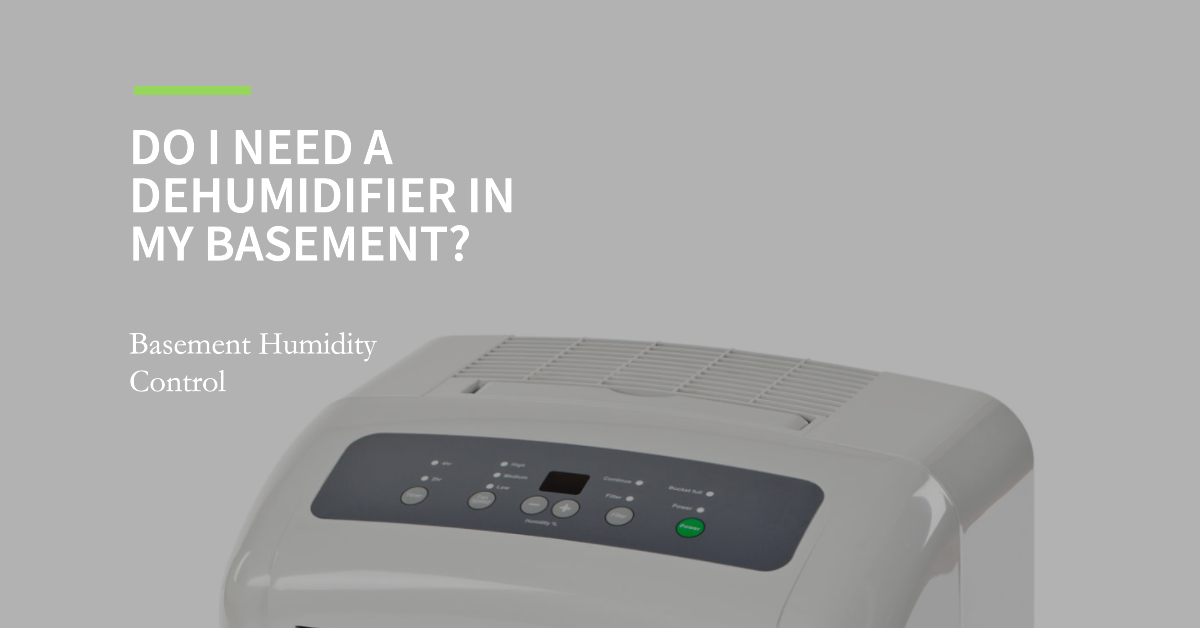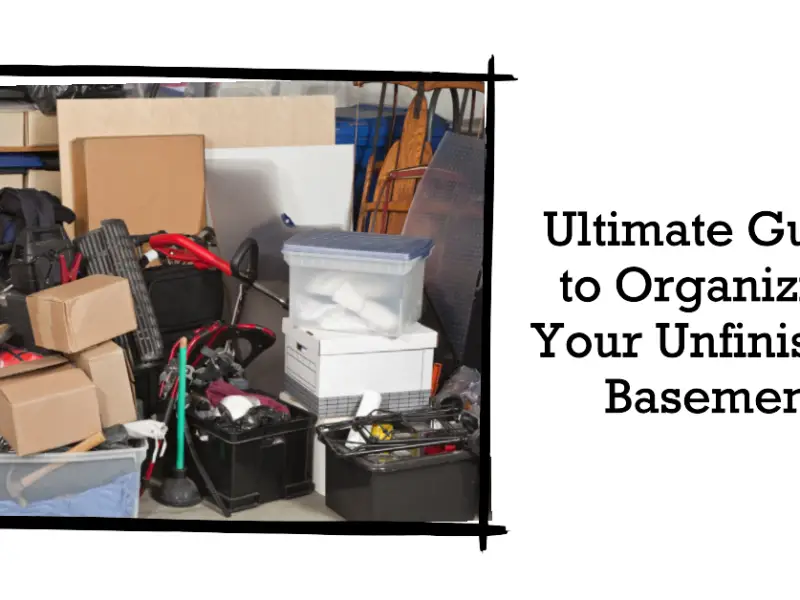I am a well-rounded expert with proficiency in several fields. My experience spans from being a dedicated chef and homemaker. As a passionate homesteader, I’ve honed my skills in sustainable living and animal care, ensuring a holistic approach to everything I undertake. Email me or Txt: (# removed due to spam, please email)
If you’re a homeowner with a basement, you might have wondered if a dehumidifier is a necessary addition to your space.
Basements are notorious for high humidity levels, which can lead to a range of issues such as mold growth, musty odors, and structural damage.
In this guide, we’ll help you understand basement humidity, identify the signs that you need a dehumidifier, and offer practical tips for choosing the right one.

Understanding Basement Humidity
High humidity in basements often results from factors like poor ventilation, inadequate insulation, and water intrusion from leaks or groundwater.
These conditions create an environment where excess moisture can accumulate, leading to problems that affect both your home and your health.
Ideally, the humidity level in your basement should be between 30% and 50%. Maintaining this range can help prevent mold growth, reduce allergens, and create a more comfortable living environment.

Signs That You Need a Dehumidifier in Your Basement
If you’re experiencing any of the following signs, it may be time to invest in a dehumidifier for your basement:
- Visible signs of excess moisture, such as condensation on windows, water stains on walls or ceilings, or damp spots on floors.
- Musty odors that indicate the presence of mold or mildew.
- Increased allergy symptoms or respiratory issues, which may be due to high humidity and allergens like mold spores and dust mites.
- Uncomfortable or muggy indoor conditions that make it difficult to breathe or feel comfortable in the space.
- Peeling wallpaper, blistering paint, or other signs of water damage or high humidity.
If you notice any of these signs, it’s essential to address the underlying issue promptly to prevent further damage and protect your health.
A dehumidifier can help manage excess moisture and improve air quality in your basement, but it’s also essential to implement complementary solutions for humidity control, such as proper ventilation, waterproofing, and addressing any underlying moisture issues.

Benefits of Using a Dehumidifier in Your Basement
Investing in a dehumidifier for your basement can provide several advantages:
- Improved air quality: Dehumidifiers help reduce allergens such as mold spores and dust mites, contributing to cleaner air and fewer allergy symptoms.
- Protection against mold, mildew, and structural damage: By maintaining optimal humidity levels, a dehumidifier can help prevent the growth of mold and mildew, as well as protect your home’s structure from moisture-related damage.
- A more comfortable living environment: A drier basement is a more comfortable space for living or storage.
- Energy savings: A dehumidifier can help your HVAC system run more efficiently by reducing the need for constant air conditioning to combat high humidity.

Choosing the Right Dehumidifier for Your Basement
When selecting a dehumidifier, consider factors such as the size of your basement, the capacity of the unit (measured in pints per day), and any additional features like built-in pumps or automatic shut-off capabilities.
Research reputable brands and models to find the best option for your specific needs.
It’s also important to consider the noise level and energy efficiency of the dehumidifier. If you plan on using it frequently, you’ll want to choose a model that operates quietly and has a low energy consumption to keep operating costs down.
In addition, make sure to properly size the dehumidifier for your basement. A dehumidifier that is too small for your space may not effectively control humidity levels, while one that is too large may waste energy and add unnecessary expense.
Finally, consider any additional features that may be important for your specific situation. For example, a unit with a built-in pump may be useful if you need to drain the collected water up and out of the basement. An automatic shut-off feature can also be helpful to prevent overflow or damage to the unit.
There are dehumidifiers specifically designed for basements, with features such as drain pipes for continuous drainage, larger tank capacities, and the ability to operate in lower temperatures.
It’s important to consider these features when selecting a dehumidifier for your basement, to ensure that it is capable of effectively managing the humidity in your space.

Tips for Maximizing the Efficiency of Your Dehumidifier
To get the most out of your dehumidifier, follow these guidelines:
- Place the dehumidifier in the right location: Position your unit away from walls and furniture to allow for proper airflow.
- Maintain your dehumidifier: Clean the filter regularly and inspect the unit for any signs of wear or damage.
- Use a hygrometer to monitor humidity levels: This device can help you track your basement’s humidity, ensuring that your dehumidifier is working effectively.
- Implement complementary humidity control strategies: Ensure proper ventilation, insulation, and waterproofing to further reduce moisture in your basement.
- Consider purchasing a dehumidifier with an automatic shut-off feature to conserve energy and prevent overflow.
- Set your dehumidifier to the appropriate humidity level: The ideal humidity level for a basement is between 30% to 50%. Setting your unit to this range can prevent excessive moisture while minimizing energy usage.
- Use your dehumidifier consistently: Running your dehumidifier regularly can prevent the buildup of excess moisture and prevent the growth of mold and mildew.

Alternatives to Dehumidifiers for Basement Humidity Control
If you’re looking for alternative methods to control basement humidity, consider the following options:
- Exhaust fans and ventilation systems: These can help remove excess moisture and improve air circulation in your basement.
- Desiccants and moisture-absorbing products: These can help absorb excess moisture in smaller or less damp areas, but may not be as effective in larger, more humid spaces. 3. Addressing underlying moisture issues: Fixing leaks, improving drainage, and sealing foundation cracks can help prevent water intrusion, which contributes to high humidity in your basement.
Additionally, you can use natural methods to control humidity in your basement, such as using houseplants, salt lamps, or charcoal bags.
Houseplants like Boston ferns and peace lilies can absorb moisture and improve air quality, while salt lamps and charcoal bags can help absorb excess moisture in the air.
However, these methods may not be as effective as using a dehumidifier or implementing other moisture control strategies, and they may require more maintenance and upkeep.

Conclusion
In conclusion, controlling basement humidity is essential for maintaining a healthy and comfortable living environment.
While a dehumidifier may be a valuable addition to your space, it’s essential to assess your basement’s unique needs and implement the appropriate solutions to manage humidity effectively.
By understanding the signs that you need a dehumidifier, choosing the right model, and using complementary strategies for humidity control, you can protect your home and improve the air quality in your basement.




